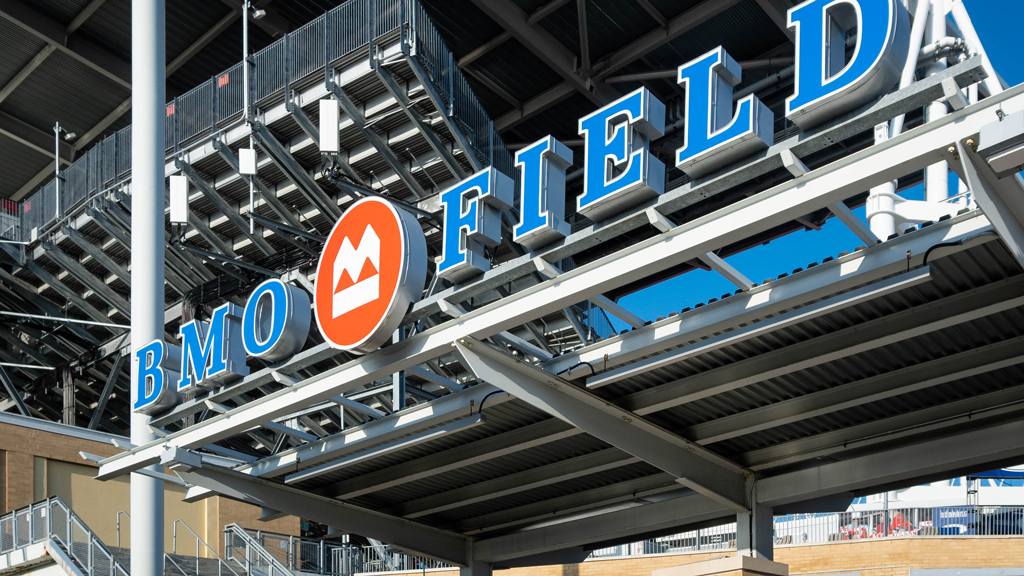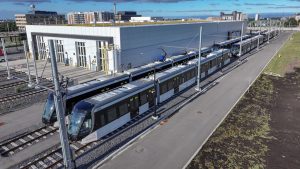The recent selection of Toronto’s bid to be a host city for the 2026 FIFA World Cup has been met with great excitement as it means that our city will be taking centre stage for the world’s biggest sporting event.
However, Toronto’s ability to host games in 2026 is conditional on the construction of an extension for BMO Field to increase its seating capacity for matches.
This experience provides us with a unique opportunity to showcase our city and our province.
By constructing this extension through the use of environmentally-friendly “mass timber” building technology, the Carpenters’ Union believes Toronto can show the world that we are committed to being a global leader in sustainability while working toward achieving the city’s TransformTO Net Zero Strategy, while spreading the economic benefits of the World Cup to other parts of Ontario.
Mass timber involves the utilization of timber more prevalently in major construction projects.
Cross-Laminated Timber panels are an extremely strong and lightweight alternative to using steel or concrete to form the structure of a building. This building technology is more environmentally friendly than traditional building materials, such as concrete, making it perfect for our city to use to meet our ambitious climate goals.
For our industry to play its part in tackling the climate crisis, switching from concrete to mass timber on major infrastructure projects is a “no-brainer.”
Not only is mass timber generally better for the environment, the Carpenters’ Union also believes it can be used to meet Toronto’s specific environmental policy goals. The TransformTO Strategy created by the City of Toronto plans to reach a target of net-zero greenhouse gas emissions by 2040. Achieving this within our set time frame will be difficult unless the construction industry takes a leading role in “green building.”
The Carpenters’ Union wants to take the first step forward by using mass timber as an effective alternative building material on BMO Field’s extension and demonstrate that the path to net-zero emissions involves greater implementation of this technology on construction projects across Ontario.
Building it with mass timber will not only support Toronto and its surrounding areas, but also northern Ontario communities that harvest and manufacture timber products.
For those that are unfamiliar with mass timber, it may seem far-fetched to suggest it could be used to construct stadium seating.
However, the English professional soccer team, Forest Green Rovers, are in the process of constructing their new 5,000-seat stadium entirely out of mass timber.
Their stadium plans to be the eco-friendliest in Europe and has already garnered huge amounts of praise.
Further, there is precedent for mass timber’s usage in the construction of sports facilities in Canada.
Both Université Laval’s Telus Stadium and Montreal’s Saint-Michel stadium feature mass timber components and are used for soccer.
As is seen with these two stadiums, incorporating timber would give the BMO Field extension a uniquely Canadian feel.
The World Cup brings international recognition to host cities but it also places them under the microscope of the global community.
The construction of stadiums can be a focal point of scrutiny, as Qatar has seen with the backlash they’ve faced due to the high death toll of construction workers building their stadiums.
The World Cup is an opportunity “to welcome the world and showcase all that our city has to offer,” said City of Toronto Mayor John Tory.
Presenting BMO Field’s mass timber extension through the context of working to achieve the TransformTO Net Zero Strategy would rightly exhibit Toronto as the ambitious, sustainable world leader that it is.
The College of Carpenters and Allied Trades (CCAT) is a construction skills school in which over 5,000 Carpenters’ Union members and non-union workers receive training each year. Since they established their pilot project for mass timber in 2019, the demand for this training course has risen greatly, demonstrating the scarcity of mass timber training in our industry.
With the quality of training that the CCAT provides, the Carpenters’ Union has the resources to train our members to build BMO Field’s mass timber extension for World Cup 2026, showcasing one of Canada’s great natural resources, and establishing Toronto as a sustainable city on a global scale.
To say that building the extension using common building materials that create a carbon footprint is a wasted opportunity would be an understatement.
A FIFA World Cup is a unique event, one that requires an innovative building solution demonstrating Toronto’s ability to be a global leader in sustainability – that solution is mass timber.
Mike Yorke is president of the Carpenters’ District Council of Ontario. Send Industry Perspectives Op-Ed column ideas and comments to editor@dailycommercialnews.com.











Recent Comments
comments for this post are closed